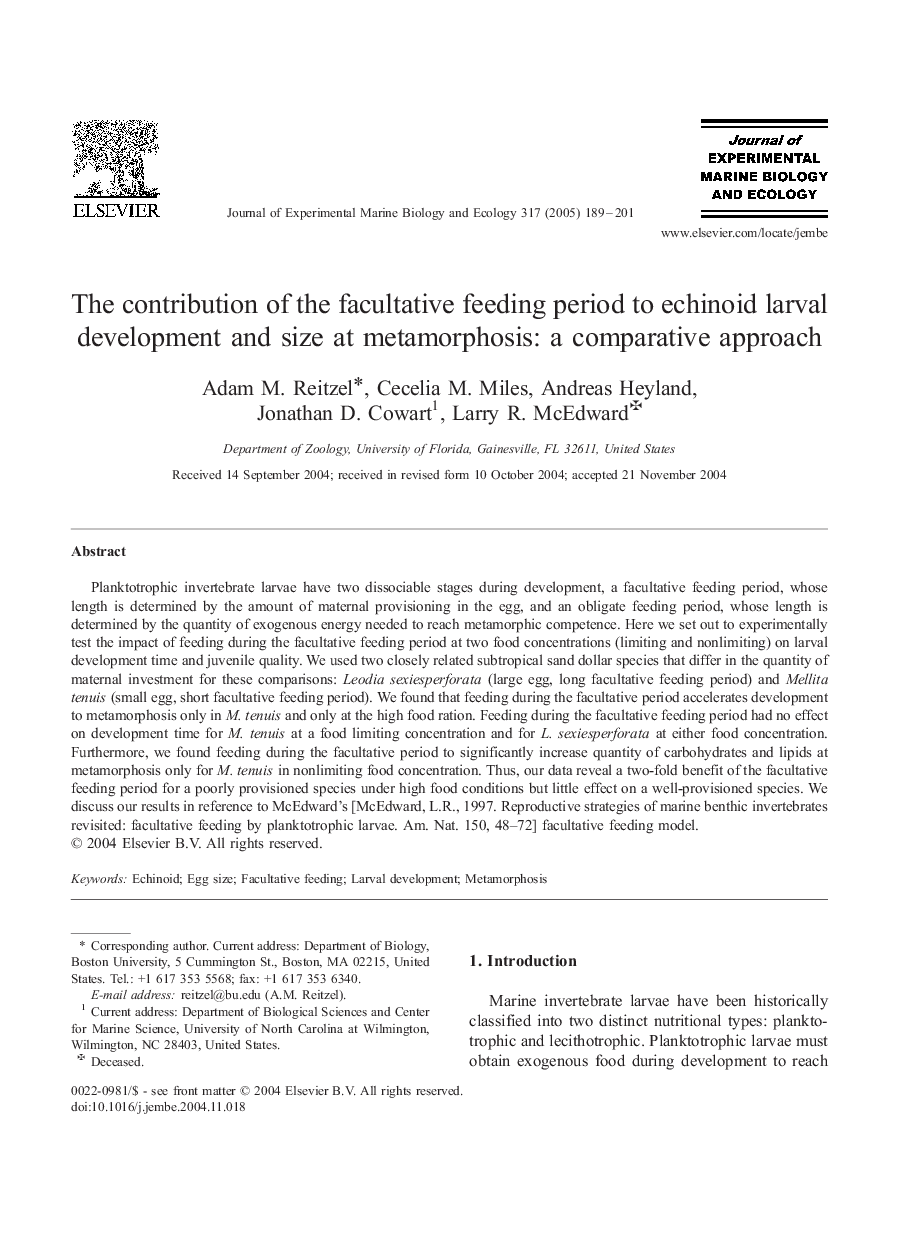| Article ID | Journal | Published Year | Pages | File Type |
|---|---|---|---|---|
| 9448838 | Journal of Experimental Marine Biology and Ecology | 2005 | 13 Pages |
Abstract
Planktotrophic invertebrate larvae have two dissociable stages during development, a facultative feeding period, whose length is determined by the amount of maternal provisioning in the egg, and an obligate feeding period, whose length is determined by the quantity of exogenous energy needed to reach metamorphic competence. Here we set out to experimentally test the impact of feeding during the facultative feeding period at two food concentrations (limiting and nonlimiting) on larval development time and juvenile quality. We used two closely related subtropical sand dollar species that differ in the quantity of maternal investment for these comparisons: Leodia sexiesperforata (large egg, long facultative feeding period) and Mellita tenuis (small egg, short facultative feeding period). We found that feeding during the facultative period accelerates development to metamorphosis only in M. tenuis and only at the high food ration. Feeding during the facultative feeding period had no effect on development time for M. tenuis at a food limiting concentration and for L. sexiesperforata at either food concentration. Furthermore, we found feeding during the facultative period to significantly increase quantity of carbohydrates and lipids at metamorphosis only for M. tenuis in nonlimiting food concentration. Thus, our data reveal a two-fold benefit of the facultative feeding period for a poorly provisioned species under high food conditions but little effect on a well-provisioned species. We discuss our results in reference to McEdward's [McEdward, L.R., 1997. Reproductive strategies of marine benthic invertebrates revisited: facultative feeding by planktotrophic larvae. Am. Nat. 150, 48-72] facultative feeding model.
Related Topics
Life Sciences
Agricultural and Biological Sciences
Aquatic Science
Authors
Adam M. Reitzel, Cecelia M. Miles, Andreas Heyland, Jonathan D. Cowart, Larry R. McEdward,
